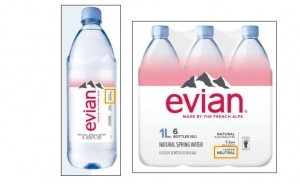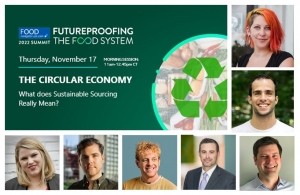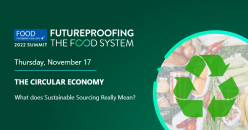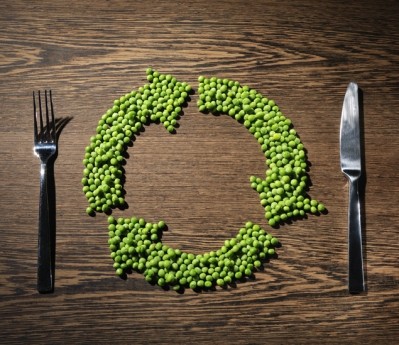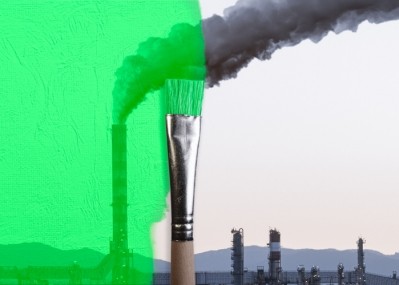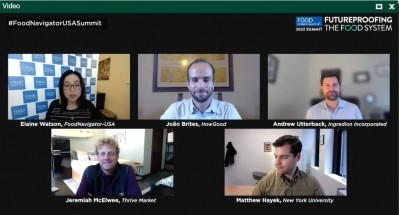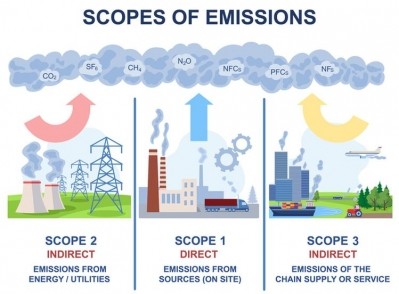Will ‘carbon neutral’ claims land brands in legal hot water? Danone sued over Evian eco claims
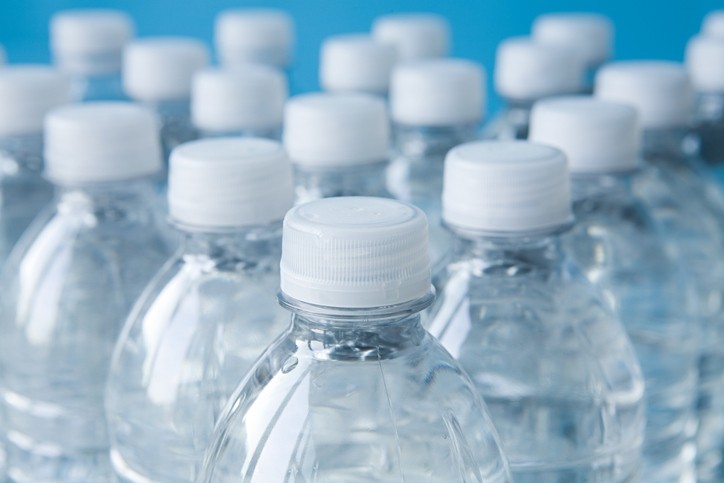
In a proposed class action lawsuit* filed in the Southern District Of New York last week, plaintiff Stephanie Dorris argued that Evian bottled water, which was certified carbon neutral by the Carbon Trust globally in 2020, “is not ‘carbon neutral’ based on how a reasonable consumer would understand the term.”
Carbon offsets ‘will not happen for decades’
It explained: “Reasonable consumers would understand and believe that the term ‘carbon neutral’ means the manufacturing of the product—from materials used, to production, to transportation—is sustainable and does not leave a carbon footprint.
“Moreover, even if reasonable consumers understood ‘carbon neutral’ to mean that Defendant’s investments in ostensibly eco-friendly projects offset the CO2 produced by the manufacture of the product,” added the complaint, the claim would "still be false."
Noting that the FTC Green Guides require marketers to disclose if offset purchases fund emission reductions that will not occur for two years or longer, it added: “Even if carbon neutral is meant to refer to Defendant’s offset credits, Defendant’s advertising is still false and misleading under the FTC’s guidelines because the organizations defendant utilizes also contribute to pollution and climate change, and any offsets will not happen for decades.
“The organizations defendant works with that are the basis for its carbon credits do not currently or actually reduce CO2 emissions, and thus do not offset the CO2 emissions created by Defendant’s production of the Product in any manner. Accordingly, even under the ‘carbon offset’ definition of ‘carbon neutral,’ defendant’s claim is still false.”
Moreover, Danone “does not define what it means by ‘carbon neutral’ on the product’s labeling or packaging and does not direct consumers to defendant’s website or another source for any supplemental definition,” added Dorris, who seeks to represent a nationwide class of consumers seeking financial redress from Danone.
“Consumers would not have purchased the product, or paid substantially less for it, had they known the carbon neutral claim was not true.”
Danone North America: 'evian products are certified carbon neutral to PAS 2060'
Danone North America sent us a statement noting that, "While we cannot comment on active litigation, each year we measure carbon emissions across all life cycle stages of an evian bottle, and we continuously strive to reduce that footprint.
"Our bottling site runs on 100% renewable energy, and we have reduced the site’s absolute energy consumption by 28% since 2008. We partner with the Livelihoods Carbon Fund, which has planted 130 million trees so far, sequestering carbon emissions from the atmosphere."
The spokesperson added: "evian products are certified carbon neutral to PAS 2060—the only recognized international standard for carbon neutrality—by the Carbon Trust. Independent assessments like this further demonstrate our commitment to sustainability and environmental preservation throughout our work."
Attorney: Greenwashing lawsuits are on the rise
So what do legal experts make of the case?
Is ‘carbon-neutral’ a claim that is potentially problematic on pack, even if it is underpinned by a third-party certification?
David Kwasniewski, a partner at law firm BraunHagey & Borden, told FoodNavigator-USA that lawsuits alleging greenwashing are on the rise, and that carbon neutral – while in this case underpinned by a specific third-party standard – is a potentially risky claim to make.
He added: “It’s not just that consumers don’t understand what it means, I think there’s still a lot of scientific debate about it, and about offsetting, and how exactly you could measure the amount of carbon dioxide absorbed by trees, for example.
“Even with a third party certifier that is truly independent and objective, that is not going to be sufficient to prevent some plaintiffs’ lawyers from making an argument that consumers believe neutrality means something other than what that third party body says. So I think right now, these things are very risky and will be challenging to defend.
“The fact remains that judges and lawyers can construct all manner of arguments about what is and is not carbon neutral, and what would be reasonable in the eyes of any consumer seeing that phrase. But unless and until there is an actual regulatory definition, there is always going to be some risk with making a carbon neutral claim.”
Broad unqualified claims are a no no. But could more specific green claims also mislead shoppers?
For legal reasons, attorneys typically advise brands to be as specific as possible on food labels – advising, say, ‘no artificial colors or flavors,’ rather than ‘all-natural.’ The FTC Green Guides also tell marketers not to make broad, unqualified claims that a product is ‘environmentally friendly’ or ‘eco-friendly.’
But are firms also potentially misleading consumers with more-specific sustainability claims that highlight one aspect of their operation that might confer an undeserved green halo over the whole product, but don’t help them compare available options and make an informed choice, and may even obscure the fact that what they are doing is fundamentally unsustainable?
It’s certainly a risk, said Kwasniewski, noting that any company packaging and shipping water in bottles (whatever they’re made out of) when consumers can simply turn on the faucet and drink municipal water instead, probably shouldn’t win any prizes for saving the planet, even if their claims are accurate.
“There is a risk of a green halo claim arising from specific and even indisputably true language that nonetheless, plaintiffs’ lawyers or regulators will argue, makes a fundamentally unsustainable product like perhaps water sold in a plastic bottle appear more ecologically friendly than it actually is. So I do think that's something to consider in crafting such claims.”
‘Aspirational’ eco-claims
So where is the middle ground between nebulous ‘climate-friendly’ claims and super-specific claims that might confer an undeserved green halo?
According to Kwasniewski, “Many companies are opting for more aspirational language, so for example, we've seen companies switch from saying, 'recyclable,' to 'designed to be recyclable' or 'intended to be recycled.' You could imagine phrases like, ‘This product was produced in a manner intended to reduce its carbon footprint’ or ‘With each sale we take efforts to achieve carbon neutrality.’ It is much more difficult to claim this is misleading since it's just a statement of intent.”
According to the Evian website Evian’s bottling plant in Evian-les-Bains, France, runs on 100% renewable energy generated from hydropower and biogas: “We set our sights on becoming certified as carbon neutral and have achieved it by continuously measuring and reducing our carbon emissions at each stage of our bottle’s life cycle: from the materials we use, to production, transportation and recycling. The emissions that remain are then offset through our work with Livelihood Funds that has planted 130 million trees. Mangrove trees trap CO2 and generate positive emissions, absorbing carbon and producing oxygen.
“We transport about 75% of our bottles from our factory by train in France to harbors because trains produce a carbon footprint 10x smaller than trucks. Currently, all of our plastic bottles are made from 25% rPET except our 1.5L which consists of 50% rPET. Evian is also collaborating in North America with the Closed Loop Fund to increase collection and recycling rates of plastic bottles and to advance the circular economy.”
Attorney: ‘Danone and Evian appear to be sincere in their efforts to address the climate impacts of their operations’
William Acevedo, partner at law firm Stratagem LLP, noted that PAS 2060 is the international standard for carbon neutrality that the Carbon Trust uses for its certification program, which has particular requirements for the quantification, reduction and offsetting of greenhouse gas emissions gas emissions, adding that, “To say the least, Danone and Evian appear to be sincere in their efforts to address the climate impacts of their operations.”
He also challenged the plaintiff’s assertion that Danone does not define what it means by carbon neutral, adding: “Plaintiff artfully fails to acknowledge that the Carbon Trust’s certification mark is situated directly adjacent to this claim on the 1L, 6 bottle pack’s outer wrapping. While not an expressly worded qualification, you cannot reasonably argue that Evian does not include additional information on pack from which the carbon neutral claim can be further explained.”
But could the claim be qualified or more descriptive? “Possibly,” he said. “Even so, I am not sure that Danone and/or Evian will be viewed in either a court of law or a court of public opinion as an environmental scofflaw that is brazenly greenwashing what appear to be sincere, years-long efforts to be more environmentally responsible.”
Attorney: Follow the Green Guides
Bruce Silverglade, principal at OFW Law added: "In brief, companies should follow the FTC’s Green Guides... the FTC Green Guides are based on two over-arching principles: claims should be based on competent and reliable scientific evidence and should be qualified with explanatory disclosures. Such steps will not provide complete immunity to class action lawsuits, but will go a long way towards reducing liability."
*The case is Stephanie Dorris et al vs Danone Waters Of America. Case 7:22-cv-08717 filed October 13, 2022 with the US District Court in the Southern District Of New York. Among other things, it alleges violations of California Consumers Legal Remedies Act, fraud and unjust enrichment.

Interested in measuring and responsibly reporting environmental impact?
Tune into day three of our upcoming virtual summit: Futureproofing the Food System (Nov 15-17) where we'll look at on-pack claims in the opening session: What does Sustainable Sourcing Really Mean?
Nov 17: 11am- 12.45pm Central time
PANEL: The climate smart roadmap… Pretty much every food & beverage brand now makes some kind of appeal to the consumer about its green credentials, spanning everything from ‘carbon-neutral’ and ‘sustainably-sourced’ to ‘climate-friendly,’ ‘water-positive,’ ‘regeneratively-farmed’ and ‘zero-waste.’ But how do industry buyers – and consumers – assess these claims, make meaningful comparisons between products in the same category, and stay alert to the ever-present threat of greenwashing?
- João Brites, director of growth & innovation, HowGood
- Jeremiah McElwee, chief merchandising officer, Thrive Market
- Matthew Hayek, assistant professor in the department of environmental studies, NYU
- Andrew Utterback, senior manager sustainability, Ingredion
- MODERATOR: Elaine Watson, senior editor, FoodNavigator-USA
Presentation- Andrew Utterback, senior manager sustainability, Ingredion
PANEL: Sustainable packaging… from recyclable to compostable to re-usable, to edible packaging What progress is the industry making on reducing the environmental impact of food packaging, and what needs to change within industry or at a regulatory level to make this happen?
- Christine Yeager, director of sustainability, Coca-Cola Company North America
- John Hewitt, VP Packaging and Sustainability, Consumer Brands Association
- Sadrah Schadel, co-founder and CEO, No Evil Foods,
- Anne Greven, Global Head of Food and Agribusiness Innovation and the FoodBytes! platform, Rabobank
- MODERATOR: Liz Crawford, deputy editor, FoodNavigator-USA
